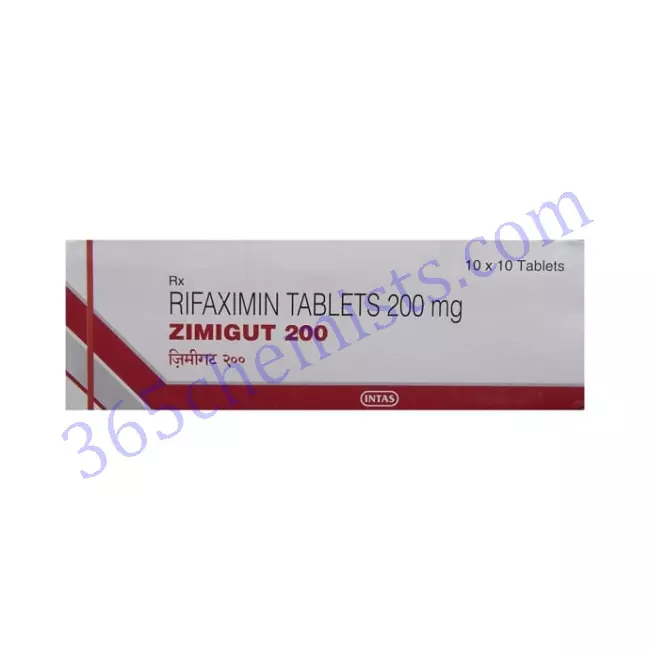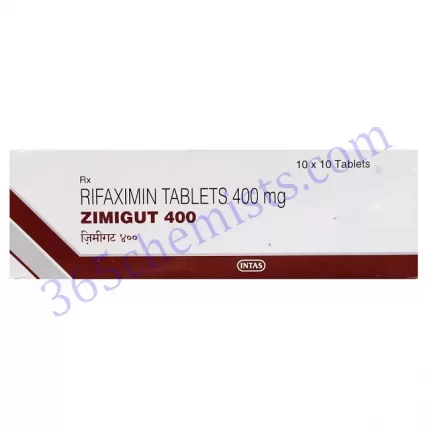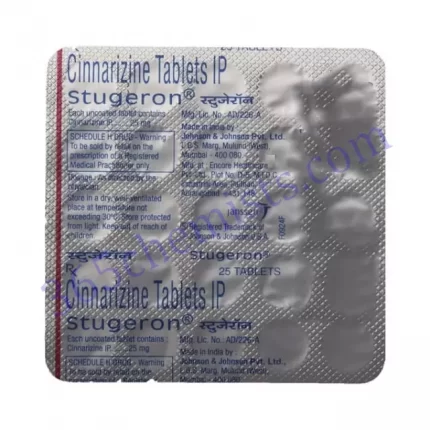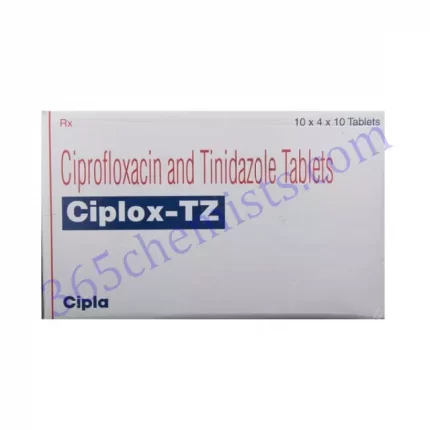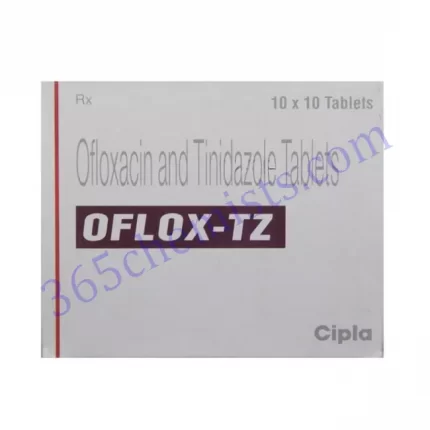Zimigut 200 Tablet (Rifaximin 200mg): A Comprehensive Description
Rifaximin is the active component of the drug that is sold under the brand name Zimigut 200 Tablet. Rifaximin is an antibiotic that has activity against a wide variety of bacteria and is a member of the rifamycin class of drugs. Its primary application is in the treatment of bacterial infections in the digestive tract, most notably those brought on by the Escherichia coli (E. coli) bacteria. The purpose of this extensive description is to offer an in-depth analysis of Zimigut 200 Tablet, covering topics such as its applications, dosage, potential adverse effects, and safety considerations.
Uses of Zimigut 200 Tablet
Zimigut 200 Tablet is a frequent medication that doctors will provide to their patients in order to treat travellers’ diarrhoea, which is often brought on by enterotoxigenic E. coli. Rifaximin helps treat symptoms such as diarrhoea, abdominal cramps, and nausea by preventing the growth of bacteria in the intestines. These symptoms might be caused by bacterial overgrowth. Hepatic encephalopathy is a condition that is characterised by brain dysfunction that is caused by liver illness. This medicine is also utilised in the management of hepatic encephalopathy. Because it lowers the quantity of ammonia-producing bacteria in the intestines, rifaximin is useful in the treatment of hepatic encephalopathy because it helps alleviate the symptoms of the condition.
Dosage and Administration
It is possible for the recommended dosage of Zimigut 200 Tablet to change based on the particular condition that is being treated. It is essential to carry out the steps in the correct order as outlined by the healthcare practitioner who prescribed the medication. The standard adult dosage that is suggested for the treatment of travellers’ diarrhoea is 200 milligrammes to be taken orally three times per day for a period of three days. In the treatment of hepatic encephalopathy, the typical adult dosage is 550 milligrammes, which should be given by mouth twice day. However, individual dosages may vary; therefore, it is extremely important to see a healthcare expert in order to determine the appropriate dosage based on the specifics of one’s case.
Related Product
Zimigut 200 Tablet
Zimigut 400 Tablet
Zimigut 550 Tablet
Side Effects of Zimigut 200 Tablet
Zimigut 200 Tablet, like any other medicine, carries the risk of causing some adverse effects. Abdominal pain, flatulence, nausea, vomiting, headaches, and dizziness are typical adverse reactions that can occur. These adverse effects are, in most cases, rather modest and transient. Nevertheless, it is imperative to seek medical assistance if they continue or become more worse. Rifaximin has been linked to significant allergic responses on extremely rare occasions. Rash, itching, swelling, severe dizziness, and difficulty breathing are some of the symptoms that might accompany an allergic reaction. In the event that any of these symptoms are noticed, it is imperative that prompt medical attention be sought.
Precautions and Warnings
Before beginning treatment with Zimigut 200 Tablet, it is essential to discuss any preexisting medical problems, allergies, or drugs that are currently being taken with your healthcare professional. Because of this, any potentially harmful drug interactions or side effects will be avoided. It is of the utmost importance to discuss any past conditions associated with the gastrointestinal tract or liver illness. Because the safety of Rifaximin use during pregnancy and breastfeeding has not been definitively proven, individuals who are pregnant or nursing are strongly encouraged to discuss the use of this medicine with their primary care physician before beginning treatment.
Drug Interactions
It is possible for Zimigut 200 Tablet to interact with other medications, which could reduce the effectiveness of those other drugs or raise the risk that they will cause adverse effects. It is essential to keep the healthcare provider informed about any and all medications that are being used, whether they are prescribed, purchased over the counter, or taken in the form of herbal supplements. Drugs that are metabolised by the enzyme CYP3A4, such as cyclosporine and tacrolimus, are examples of the types of medications that have the potential to interact with Zimigut 200 Tablet. Therefore, it is essential to have a conversation with the healthcare practitioner about any and all possible drug interactions.
Special Populations
Although Zimigut 200 Tablet is generally well accepted, there are some groups who may need to take into consideration any necessary precautions. There is no requirement for a dosage change solely based on age in the case of senior citizens. However, due to the increased possibility of age-related renal impairment as well as concurrent medical disorders, extreme caution should be exercised in this situation.
It has not been determined whether Zimigut 200 Tablet is both safe and effective when administered to paediatric patients. As a result, it should never be utilised in the treatment of children unless under the direction and advice of a qualified medical practitioner.
The pharmacokinetics of Rifaximin have not been shown to exhibit any gender- or race-related differences that are clinically meaningful. As a result, there is no requirement for a dosage adjustment in these populations.
Storage and Handling
The Zimigut 200 Tablet should be kept at room temperature, protected from moisture and sunlight, and out of the reach of children. It is essential to store the medication somewhere that is inaccessible to both children and animals. Tablets that have expired or are not being used should be disposed of in an appropriate manner in accordance with the guidelines that are specific to the area or by contacting a chemist.
Conclusion
Zimigut 200 Tablet is a wonderful drug that contains Rifaximin 200mg and is used for the treatment of bacterial infections in the gastrointestinal system. This medication is particularly useful for the treatment of travellers’ diarrhoea and hepatic encephalopathy. Individuals are able to effectively utilise Zimigut 200 Tablet to ease symptoms, reduce the risk of recurrence, and promote recovery if they follow the prescribed dosage, finish the complete course of treatment, and practise proper hygiene. When dealing with patients that fall into one of several categories that are not typical, such as the elderly or children, it is essential to seek the advice and direction of a trained medical practitioner. Individuals can assure a safe and effective usage of Zimigut 200 Tablet for the management of gastrointestinal infections if they adhere to these advice and take the medication as prescribed.

